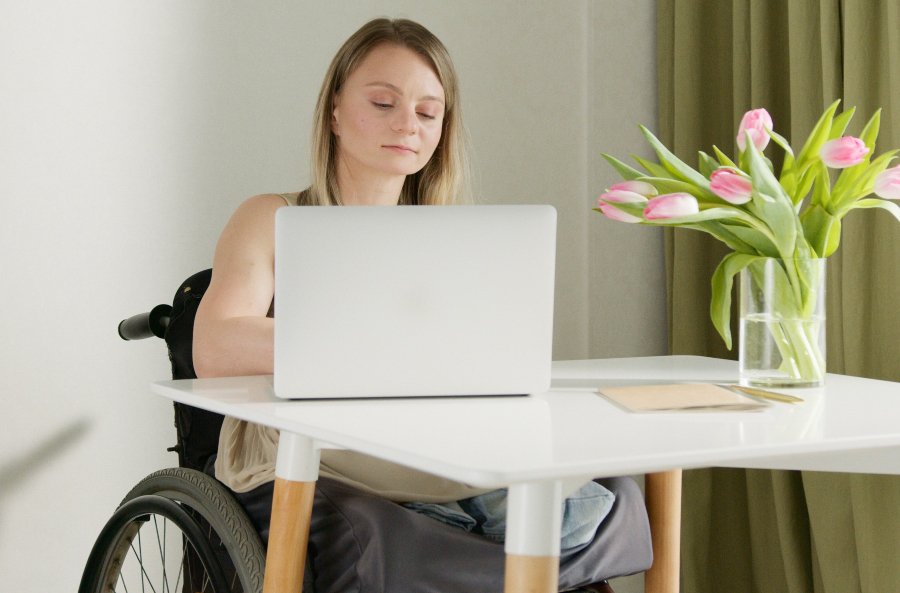Coventry University research reveals positive impact of remote working on disabled people
A research study at Coventry University has revealed how remote working can be a positive intervention for people with a disability and/or neurodivergent.
The Remote4All project was launched by Dr Christine Grant, a researcher in the Research Centre for Healthcare and Communities at Coventry University, which aims to fill a gap in understanding the impact of remote working on disabled and neurodivergent people.
Its research explored the lived experiences of working remotely and found advantages and disadvantages can depend on an individual’s needs and specific disability and neurodivergence. These included Bronwyn Francis, who was diagnosed with autism at 25. Bronwyn shared how remote working has helped her to maintain a full-time job as a people advisor for the UK Atomic Energy Authority (UKAEA).
Bronwyn said: “For me, remote work has been vital in making sure that I can work full time in a busy career. Through remote working I’m able to control things like all my sensory inputs in a way that just isn’t possible in the office. This means I can wear things like comfortable clothes and I can adjust noise and light levels.
“Remote working also helps me by cutting out that overstimulating commute to work and it gives me the privacy to decompress privately if I happen to get overwhelmed.
“Having a manager who is supportive and listens to my suggestions and asks what I need makes this all possible too.
“In my opinion, the most important thing that employers can do to level the playing field at work is to listen to their employees and ask them what they need.
“By taking the time to talk and experiment, employers can really change how someone can contribute and make them feel welcome.”
The Office for National Statistics published data in 2021 in which they estimate that only 29 per cent of autistic adults are employed in the UK.
Dr Grant said: “The project found both enablers and barriers to working remotely for this community of remote workers but overall remote working was found to be a very positive intervention for many and if there is a good communication between the line manager and employee, then the benefits can be realised.
“It has become clear through the pandemic that virtual means to interact can really help this community of workers by helping them to manage their communication preferences more easily and for some to manage their sensory needs better.
“These findings revealed that line manager support is vital to ensuring a well-supported experience of remote working, not making assumptions and working with people to find accommodations that work. Having clear guidance and training to help managers, employers are encouraged to hear as well as listen and to find mutual outcomes that benefit both employees and the employer.”
Dr Grant worked with a number of organisations on Remote4All including Vodafone. NHS Employers were also involved in the stakeholder advisory group section of the project.
UKAEA Chief Operating Officer Justin Kingsford said: “At UKAEA we are extremely proud of our diverse workforce. We actively employ people from many different backgrounds and experiences which we strongly believe enriches the working environment here and helps innovation.
“Bronwyn is a very good example of our commitment to understand the needs of our staff, which varies on an individual basis. We seek to work with them to understand what they need and ensure they are supported, whilst at the same time meeting the needs of the business.”
A survey by the Research Institute for Disabled Consumers (RIDC) and Which? has revealed disabled consumers experience poor accessibility when booking tickets and attending some live events.



